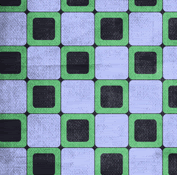Stryders Fund

Please spread the word about this digital stamp
You can get it here for only $5 for all three images
Followers
Blog Archive
Stryders List
I took some video of him playing and singing tonight. I will try tom upload it tomorrow.
Here is some info from the Epilepsy Foundation:
Seizures and Syndromes
IntroductionSeizures happen when the electrical system of the brain malfunctions. Instead of discharging electrical energy in a controlled manner, the brain cells keep firing. The result may be a surge of energy through the brain, causing unconsciousness and contractions of the muscles. The Brain and EpilepsyThe human brain is the source of human epilepsy. Although the symptoms of a seizure may affect any part of the body, the electrical events that produce the symptoms occur in the brain. The location of that event, the extent of its reach with the tissue of the brain, and how long it lasts all have profound effects. Types of SeizuresThere are many different types of seizures. People may experience just one type or more than one. The kind of seizure a person has depends on which part and how much of the brain is affected by the electrical disturbance that produces seizures. Experts divide seizures into generalized seizures (absence, atonic, tonic-clonic, myoclonic), partial (simple and complex) seizures, nonepileptic seizures and status epilepticus. Epilepsy SyndromesClassifying epilepsy by seizure type alone leaves out other important information about the patient and the episodes themselves. Classifying into syndromes takes a number of characteristics into account, including the type of seizure; typical EEG recordings; clinical features such as behavior during the seizure; the expected course of the disorder; precipitating features; expected response to treatment, and genetic factors. Find out more about epilepsy syndromes. Causes of EpilepsySeizures are symptoms of abnormal brain function. With the exception of very young children and the elderly, the cause of the abnormal brain function is usually not identifiable. In about seven out of ten people with epilepsy, no cause can be found. Among the rest, the cause may be any one of a number of things that can make a difference in the way the brain works. Head injuries or lack of oxygen during birth may damage the delicate electrical system in the brain. Other causes include brain tumors, genetic conditions (such as tuberous sclerosis), lead poisoning, problems in development of the brain before birth, and infections like meningitis or encephalitis. Find out more about causes of epilepsy. Seizure TriggersSome people who have epilepsy have no special seizure triggers, while others are able to recognize things in their lives that do affect their seizures. Keep in mind, however, that just because two events happen around the same time doesn't mean that one is the cause of the other. Generally, the most frequent cause of an unexpected seizure is failure to take the medication as prescribed. That's the most common trigger of all. Other factors include ingesting substances, hormone fluctuations, stress, sleep patterns and photosensitivity. |
Up for a Link Exchange? Would love to exchange links and/or badges with you! Let me know so I can link you up too!

About Me
- Unknown

0 comments: